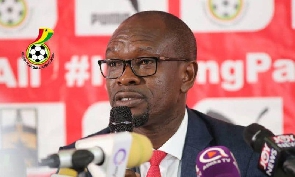As the curtain drew on the 2017 National Math and Science Quiz, amid the fascination of the final results on social media, I came across a few interesting social media posts.
There was a post that hoped that the Government would monitor the progress of the contestants through tertiary education to ensure that their talents are not ultimately wasted. Another also questioned why a lady who was judged as the best female contestant on the show was not trending on social media, when in the past ladies who went nude trended for several days.
A common assumption in all the comments and suggestions is that, competing in the NSMQ by itself is a worthy achievement that should be rewarded irrespective of the final academic achievement of these students or their families’ socioeconomic life.
In the USA and other countries, admission into colleges is not based solely on academic scores. There are essays and recommendations components. While I have always had questions about the recommendations (most professors usually follow a general template except when they are writing for their favorites), I think the essay component should be adopted by our universities.
Competing in the National Science and Math Quiz should count for something. Ditto graduating top of your year group (even if WASSCE score is bad or you are from a village school), being voted School Prefect and other student leadership positions by peers or active participation in local community projects. These qualities are only reflected in the essays and recommendations and not the WASSCE certificates.
After all we are training leaders, not just isolated academics. Colleges could award some points based on essays (perhaps 20%) and some based on academic scores (80%) for admission. Then there is the problem of affordability. A couple of years ago, a friend of mine failed the graduate medical school admission interview because according to the panel, he did not provide enough evidence for funding his education (although he passed the exams).
I remember thinking to myself then, ‘if you think the person has potential, and considering that this is a high earning professional course, would this not be the point where the school liaises with a financial institution to provide loans for such talents?’ My point is, we have to re-examine our whole education system.
Ever since I began to appreciate and understand life, I have heard many elderly people question the quality of education of various individuals or most often the quality of the modern Ghana educational system. Perhaps this was the reason that led the Kufuor administration to change names and switch to a four year high school system. Personally, I have always had questions about statements questioning the quality of education in Ghana and Africa as a whole mostly based on two principles.
First, Generational envy: I feel to an extent that the elderly generation in Ghana is envious of the modern generation. There is a sense among the elderly folk that the younger generation is having things easier. Indeed, I had this personal experience where I applied for a loan from a Government bank and the manager looked at my age and my pay slip and said, “a small boy like you making this much! I don’t think this loan would be approved.”
You can correctly guess what became of my loan application. Second, Record: Outside of Africa, it is well acknowledged that people who passed through the African system (mostly students) do exceptionally well. In fact, recent statistics in the US show African immigrants to be the most educated by proportion.
These sentiments aside, statements questioning the quality of education are not entirely without merit. Take for example several concerns raised by employers. Or the quality of research we have and how much of that translate into meaningful products. Yet still, take the relationships between the academia and politicians – while elsewhere politicians revert to researchers for help with policy, it seems in Ghana, academia is gradually becoming mere propagandists of political parties.
To properly diagnose the problems with our education system, it is important to look at the history of modern African education from the perspectives of purpose and philosophy. Before I move to look at these, I will like to state that, I am neither a historian nor a philosopher, just a concerned citizen contributing to the discourse.
In Michael Spence's job-market signaling model, he describes education as a signal sent to employers about an employee’s ability level. By acquiring education credentials through surviving four or more years of college education the employee is signaling the employer that they are willing to persevere for a vision. Educated folks are considered high ability employees.
The employer then employs the employee on the assumption that if he could survive years of education to get a degree, he will be innovative and knowledgeable enough to help achieve the corporate goals. Based on this model, we can assume that graduates of any educational system are sending specific signals about their abilities. The employers on the other hand are at the receiving end of these signals.
The problem then arises when there is a misrepresentation of the signal either at the giving end or the receiving end. For example, it is possible that a well-educated potential employee who goes to a job interview for a banking position in casual clothes might be deemed unprepared by the employer even though he might have graduated with a first class honors. This model is then very important tool to help diagnose the history and guiding principles of our education system.
Just like our civilization, Africa’s educational system was lagging behind the rest of the world at the time of colonization. We were still mostly in the apprenticeship model – the type centered on the families. Thus, if your father is a farmer, you are taught farming as you grew and you end up becoming a farmer.
This model, while good on some levels, did not leave much room for advances in Science, Technology and even trade and modern commerce. At the dawn of colonization, it became very important that the colonial masters communicated with their colonies and also train foremen to take care of the smaller communities.
Thus, Africa’s initial formal education was designed to train intermediates between the colonial masters and their slaves. Although this training also included some specialization – policemen, teachers etc. — the guiding principle and the prestige were never lost.
Modern African education, instead of becoming an improved version of the apprenticeship system, rather became an entity on its own where graduates signal their readiness to take up Western type jobs (colonial intermediaries). The result of this is we train high school graduates who can recite textbooks from page to page without any meaningful appreciation of the content, agricultural graduates who may never set foot on a farm or engineers who are not interested in the bolts and nuts of engineering.
This situation is not only peculiar to education, we see it in all sectors of our post-independence life. Our politicians are quick to show their links to Western personalities as a case for their election; our medical doctors and nurses are tin gods who would not take suggestions or discussions from patients; our policemen are mostly experts in roadblocks and non-state taxation, etc.
It is worth noting that one of the projects the great Kwame Nkrumah of blessed memory embarked on post-independence was to retune our minds. Training Africans to captain ships and fly airplanes around and other activities were designed to shape our guiding philosophies and to change the way we see things. Unfortunately, we all know what we did to him with the help of those who would not want us to change our mindsets.
So my theory is that the problem with our education system, just like all other spheres of our post-colonial life, is our guiding philosophy. Our education system is still training graduates for the colonial masters. Philosophy cannot be cured by changing names or increasing the number of years. Take our political leadership and corruption for example, as long as the guiding philosophy of our leadership is not Ghana-first, corruption is going to continually deprive us of our resources.
(I hold the point of view that since leadership is a representation of the people, if leaders are pervasively corrupt, it might not just be the leaders – it is the philosophy of the people).
As a people we must start developing a real burden for the nation. We must understand that we cannot match our senior brothers (i.e., Western countries) overnight and be patient enough to go through the growth process. We must redefine who and what makes opinion leaders. Opinion leaders should not be those who seek to mimic the ills of Western civilization but those who share the burden of national growth and development and are willing to sacrifice in that wise.
The educated folks must understand the difference between political rhetoric and reality. It is enough that we make all the noise, accuse and counter accuse during political seasons provided we know the reality and our limits. In Ghana, every two decades we tend to regret our political actions – by 1980 we were regretting the coup of 1966; by 2000 we were regretting the assassinations and murders of 1979-1981.
These events enjoyed massive support at the time of occurrence, meaning our political system is full of uncontrolled sensationalism. Unfortunately, the clergy and other civil society leadership groups who are expected to help diffuse that level of sensationalism are the worst culprits. What we are no longer allowed to do due to civilization, we have channeled into our political fiber. So that instead of saying we hate certain people just because of their tribes (which would be uncivilized), we tag the political party that the tribe is mostly associated with dehumanizing insults, often a reflection of our insufficiencies.
Note: I do not condone corruption, I believe corrupt officials should be dealt with when found guilty. Just like the apostle Paul told the Romans, we need a total mind renewal in the continent of Africa. Historically, massive changes in philosophy comes after wars and severe disasters.
Unfortunately, modern warfare techniques and improvements in science means we may never have that opportunity and the only open door available is determination. I believe the hype around the recent National Math and Science Quiz provides a perfect opportunity to reflect on some of the core values of our dear country.
Opinions of Monday, 10 July 2017
Columnist: Barnabas Otoo















